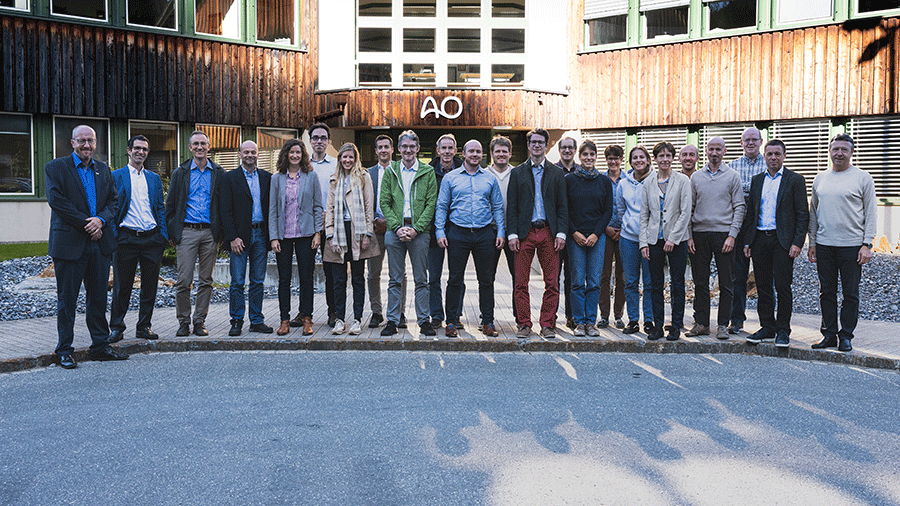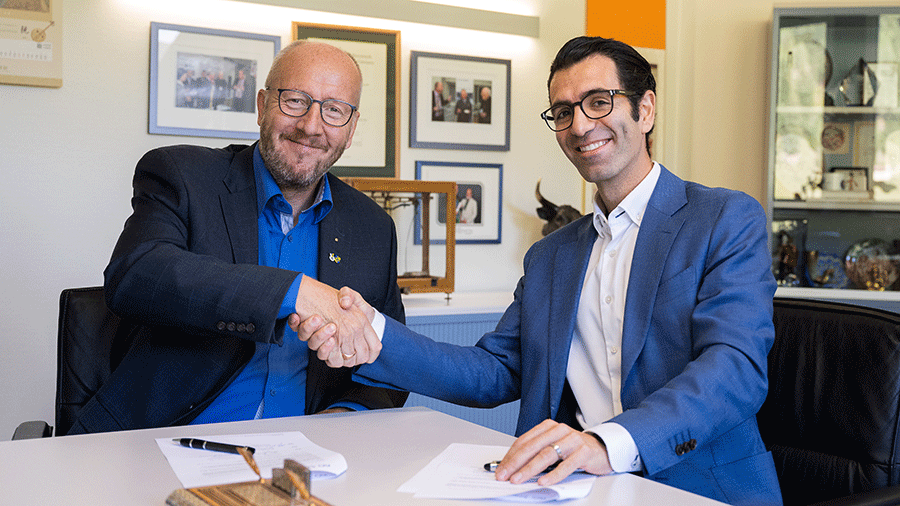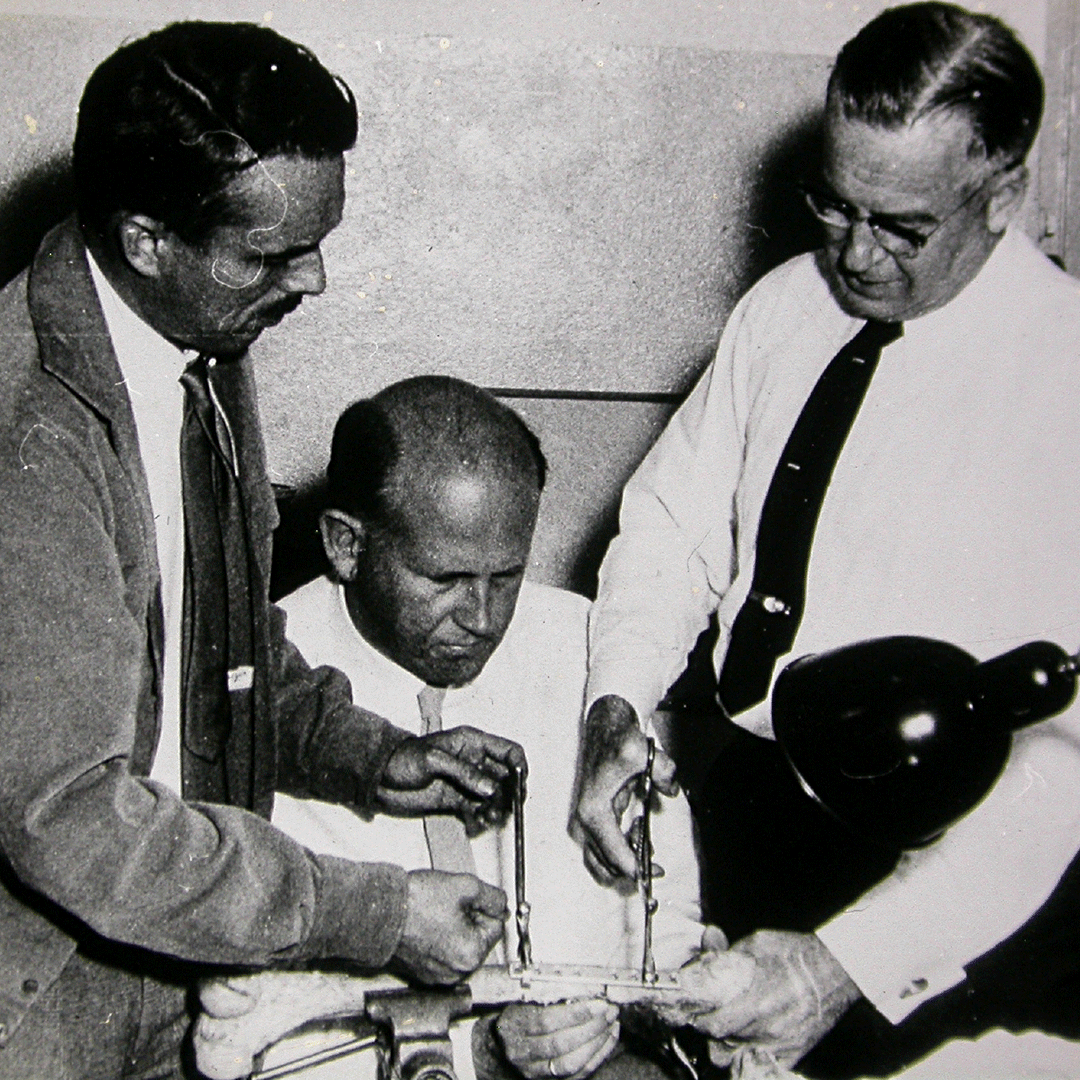‘Win-win’ for science and patients: AO Foundation and Balgrist University Hospital collaborate to advance patient care

The AO Foundation (AO) and Balgrist University Hospital in Zurich—two pioneers with the complementary goal of improving patient care and outcomes in trauma and musculoskeletal disorders are initiating strategic collaborations in several areas. AO and Balgrist University Hospital officials met September 23, 2022, at the AO Research Institute Davos (ARI) to sign a memorandum of understanding outlining their potential collaborative synergies in research, innovation, and education. The collaboration includes two jointly supervised PhD projects focused on shared research at ARI and Balgrist University Hospital.
The PhD research projects begin in January 2023—one to ultimately reduce non-healing in spinal fusion patients and another to co-develop a potentially revolutionary antibiotic-laden patch technology from Balgrist University Hospital combined with patented gel technology from ARI to prevent disc infection after microdiscectomy—and the collaboration has the potential to make additional inroads in education and innovation.
The AO's world-leading institutes—including ARI—drive development, innovation, and research by delivering value-added products and services to the AO's global network of surgeons and operating room personnel (ORP), and its partners. Balgrist University Hospital, in partnership with ETH Zürich and University of Zurich, advances the latest clinical and scientific findings for primary care doctors, specialists, and other medical professionals.
“ARI is one of the leading research institutes in the world in the musculoskeletal domain, and Balgrist University Hospital is obviously in the top in the clinical treatment of musculoskeletal disorders,” said AO Executive Director Research and Development and ARI Director Geoff Richards. “ARI is a research institute with a fully focused multidisciplinary research team on one campus and one of the top in the world when it comes to disc degeneration and regeneration, infection, and musculoskeletal biomechanics—the topics of the joint PhDs. Balgrist University Hospital is a hospital with an associated research team, and they are very strong in translational sciences. This collaboration is a win-win due to proximity and complement of knowledge within our areas.”
After the course, he and Richards brainstormed about possible opportunities for the AO and his hospital to collaborate and exchanges have taken place in both Zurich and Davos to refine and make the collaboration concrete during 2022.
Like Richards, Farshad sees plenty of potential in the newly minted collaboration.
“Joining these two organizations—the AO and Balgrist University Hospital—for collaboration will maintain Switzerland as a lighthouse in orthopedic and trauma science. That’s why it is not only a good idea but actually a necessity to open talks between these two outstanding institutions,” he said.
The history of the AO and Balgrist University Hospital has long been intertwined: AO founding father Maurice E Müller was chief resident at the hospital from 1952–57, and that’s where he met fellow AO co-founder Fritz Brussatis—the only non-Swiss founding member of the AO—who, as a neurosurgeon at the hospital, instructed Müller in disc surgery.
Both the AO and Balgrist University Hospital have evolved significantly in the past six-plus decades. The hospital has grown in size, and the impact of its orthopedic science research has broadened and deepened; in parallel, the AO has become internationally renowned as a leader in surgical education, musculoskeletal research, and innovation. It is not uncommon for scientific staff and clinical fellows to migrate back and forth between the Swiss-based institutions, given the institutions' shared philosophy of translational research.
“The main strategy of our hospital’s orthopedics research is that it’s translational. As the largest orthopedic university hospital with an integrated paraplegia center, our physician-scientists identify the problems that remain unanswered for patients and answer them together with basic researchers and developers,” Farshad said. “This fits perfectly with the founding philosophy of the AO. The historically grown research and innovation focuses of Balgrist University Hospital and the AO complement each other, and, when combined, will make Switzerland the country with the highest impact on musculoskeletal medicine."
Prof Jess Snedeker, head of biomechanics and deputy chair of orthopedic research at Balgrist University Hospital, sees great potential for the ultimate benefit of patients in the short-, medium-, and long-term. Innovations in surgical technique with the creation of better, more surgeon- and patient-friendly implants are an example of targeted short-term achievements.
“With the stakeholders currently involved in the collaboration, including Balgrist's clinician-scientists and scientific experts from ARI, we have assembled an amazing team of opinion leaders from our field. Any consensus formed between Balgrist University Hospital and ARI is positioned to significantly and positively impact patient care,” Snedeker said. “Our missions are extremely well-aligned.”
Snedeker expressed that the collaboration has hit the ground running: Selection of candidates for the two joint PhD projects is already underway. ARI Biomechanics and Modeling Focus Area Leader Peter Varga, PhD, PD, and Balgrist University Hospital’s Spine Biomechanics Group Leader Jonas Widmer, PhD, will act as advisors on the project titled “Patient-specific optimization of spinal fusions using validated computer simulations.” ARI Deputy Program Leader Regenerative Orthopaedics and Focus Area Leader Disc and Cartilage Biology Sibylle Grad, PhD, PD, and the hospital’s Experimental Rheumatology Group Leader Stefan Dudli, PhD, will act as advisors on the project titled “A functionalized annulus fibrosus repair patch to prevent post-surgical disc infection.” This project will strongly leverage the infection expertise of ARI Focus Area Leader Infection Biology Fintan Moriarty, PhD, and is likely involve the preclinical team of Stephan Zeiter, DVM and program leader of ARI's Preclinical Services program, in the future testing the combined biomaterials together with antimicrobials.
AO Executive Director Innovation Translation Claas Albers says partnering with a best-in-class hospital is an excellent opportunity for the AO. “I’m very excited about this collaboration. We have always looked to Balgrist University Hospital and what they’ve achieved with a state-of-the-art campus and driver of innovation in a hospital environment,” he said. “They have attracted a great network and introduced structures to realize innovation—and that in itself is something we always have admired from here in Davos. Balgrist University Hospital has exceptional talent in their medical and research team, and we want to open opportunities for our people and their people to gain experience together on collaborative projects, which will begin with the two PhD projects but could extend to education and innovation.”
In addition to its collaboration with the AO, Balgrist University Hospital recently entered into a three-department collaboration agreement with Spital Davos. Under that agreement, the hospitals will complement one another in the areas of sports and professional medicine, rehabilitation, and spine medicine. Richards is very happy to hear this, so that the organizations can also look for three-way partnerships within these areas.
Read the AO and Balgrist University Hospital's joint press release on the collaboration.




.png?h=1200&iar=0&w=1200&rev=2f1f999ee1434366b1b681ea41161a4b)